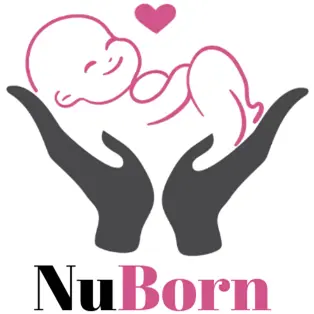Introduction
Welcoming a newborn into the world is a moment of immense joy and hope, but it can also bring unexpected medical challenges. One such condition that demands our utmost attention and specialized care at New Born Care Center is Necrotizing Enterocolitis (NEC). This inflammatory condition affects the intestines of premature infants and can have serious consequences if not managed promptly and expertly. In this comprehensive blog, we will delve into the complexities of NEC, its potential causes, preventive strategies, and the crucial role that our state-of-the-art neonatal care center plays in addressing this critical condition.
Chapter 1: Understanding Necrotizing Enterocolitis (NEC)
1.1 Defining NEC and Its Incidence
At New Born Care Center, we place great emphasis on understanding NEC, a condition characterized by inflammation and tissue damage in the intestines. We will provide an insightful definition of NEC and discuss its incidence, particularly in premature newborns, highlighting the need for early detection.
1.2 The Impact of Prematurity
NEC is more prevalent in premature infants, given their immature gastrointestinal systems. We will explore the connection between prematurity and the susceptibility to NEC, underlining the importance of tailored care for preterm babies.
Chapter 2: Causes and Risk Factors
2.1 Factors Contributing to NEC
Numerous factors can contribute to the development of NEC. This section will delve into the potential causes, including gut immaturity, altered gut microbiota, decreased blood flow, and formula feeding, among others.
2.2 Identifying High-Risk Infants
At New Born Care Center, we employ vigilant screening protocols to identify high-risk infants. We will discuss the identification process and how healthcare providers can implement preventive measures.
Chapter 3: Recognizing the Symptoms of NEC
3.1 Early Signs and Symptoms
Detecting NEC in its early stages is crucial for successful management. We will outline the common symptoms of NEC, including feeding intolerance, abdominal distension, and bloody stools, empowering parents and healthcare professionals to recognize warning signs promptly.
3.2 The Importance of Timely Intervention
The swift initiation of supportive treatment is essential to prevent the progression of NEC to more severe stages. This section will emphasize the critical role that early intervention plays in achieving positive outcomes.
Chapter 4: Supportive Treatment for NEC
4.1 Nurturing the Gut: Enteral Nutrition Strategies
At New Born Care Center, we adopt a careful approach to provide adequate nutrition while protecting the inflamed intestines. We will discuss enteral nutrition strategies that aim to promote gut health while minimizing the risk of complications.
4.2 Intravenous Therapy and Fluid Management
For infants unable to tolerate enteral feeds, intravenous therapy becomes essential. We will explore the importance of fluid management and electrolyte balance in NEC cases.
Chapter 5: Surgical Intervention for Severe NEC
5.1 When Surgery Becomes Necessary
In severe cases of NEC, surgical intervention may be required to remove necrosed or severely damaged parts of the intestine. This section will discuss the criteria for surgical intervention and the importance of timely decision-making.
5.2 Advanced Surgical Techniques
At New Born Care Center, our skilled surgical team is equipped to perform advanced surgical techniques to treat NEC. We will explore these techniques and the benefits they offer for the baby’s recovery.
Chapter 6: Long-Term Care and Complications
6.1 Monitoring and Follow-Up Care
After surviving NEC, infants may require long-term monitoring and follow-up care. We will discuss the importance of regular check-ups to assess growth, development, and any potential complications.
6.2 Potential Complications and Neurodevelopmental Outcomes
While some infants recover fully from NEC, others may experience long-term complications, including neurodevelopmental challenges. We will highlight the need for comprehensive developmental assessments and early intervention services.
Chapter 7: Prevention Strategies
7.1 Reducing the Risk of NEC
Preventing NEC is a primary goal at New Born Care Center. This section will explore evidence-based preventive strategies, including feeding practices, probiotics, and infection control measures.
Chapter 8: The Role of New Born Care Center
Om
8.1 Advanced Neonatal Care Facilities
At New Born Care Center, we are dedicated to providing the highest standard of care for newborns facing challenging conditions like NEC. This section will highlight the specialized facilities and resources that enable us to offer comprehensive care.
8.2 Multidisciplinary Team Approach
Addressing NEC requires a collaborative effort from a multidisciplinary team of neonatologists, pediatric surgeons, nurses, and other specialists at New Born Care Center. We will emphasize the significance of this coordinated approach to optimize outcomes.
Conclusion
Necrotizing Enterocolitis is indeed a condition that demands immediate attention, expert care, and a proactive approach to prevention. At New Born Care Center, we are committed to providing the best possible care for infants affected by NEC and other critical conditions. By promoting early detection, advanced supportive treatment, and specialized surgical intervention when necessary, we aim to improve outcomes and pave the way for a healthier future for every precious life we nurture. With unwavering dedication and cutting-edge care, we strive to make a positive impact on the lives of newborns and their families, ensuring a brighter and healthier journey into the world.

